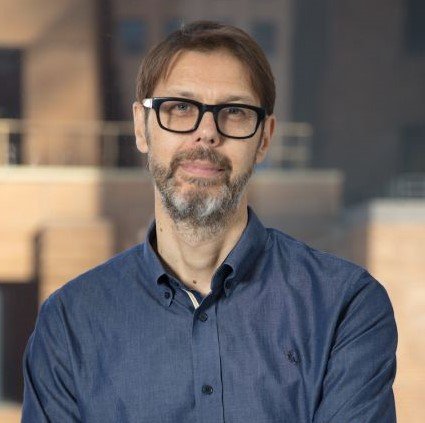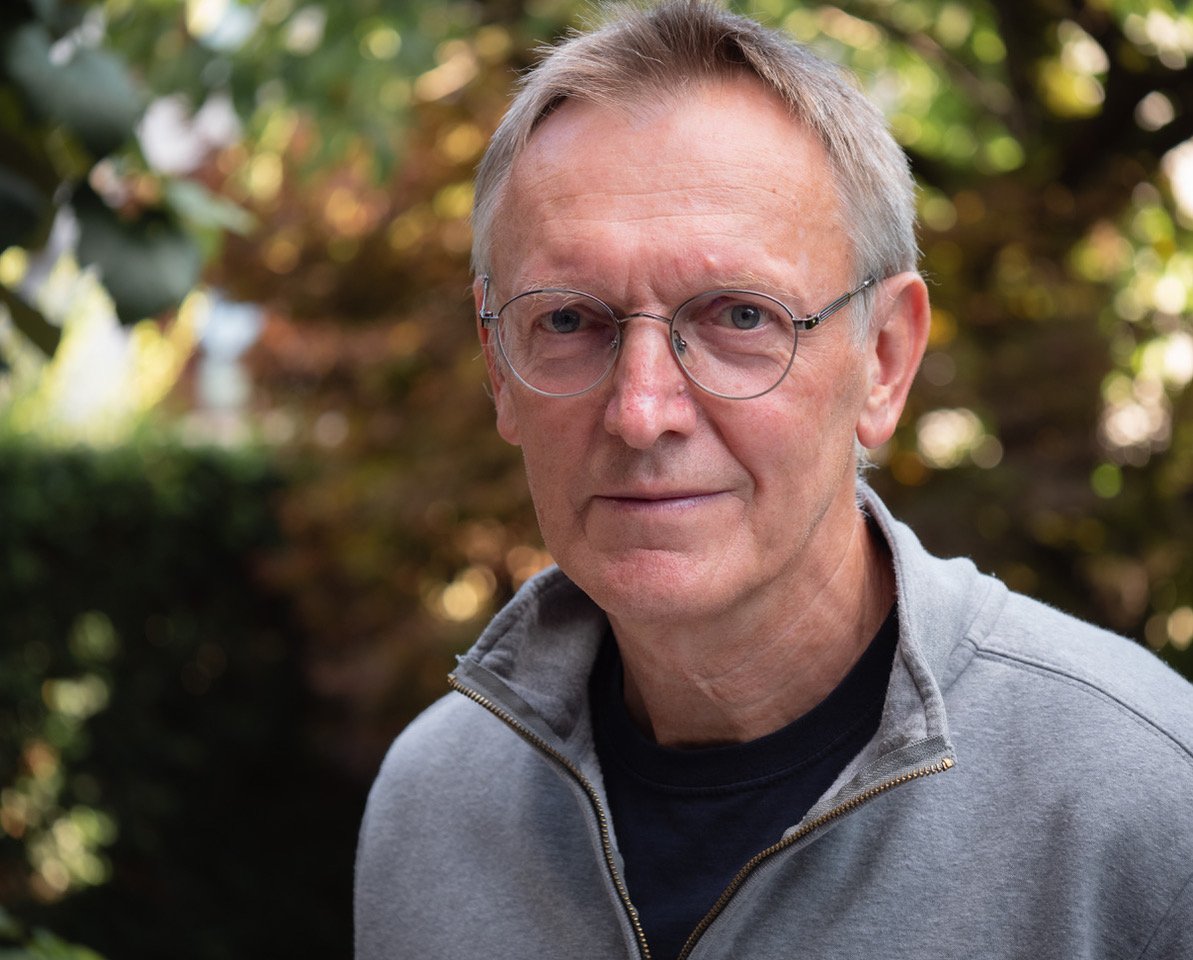Frontiers Policy Labs: In conversation with Robert-Jan Smits
Robert-Jan Smits
The inside story of Plan S, the ground-breaking campaign pledge to end the restrictive paywalls around taxpayer funded scientific research. Vital scientific knowledge freed and instantly available to the many, not just the few. The campaign coalition's architect, Robert-Jan Smits, shares his account of the shocks that Plan S delivered to the publishing world, and of the progress that unfolded.
Why the 21st Century needs more idealism in science and science policy
We need more idealism in science and science policy to find solutions to challenges. If we restrict ourselves to what is tangible, known and established today, there is a risk that possible solutions to ‘wicked’ challenges that contribute to enriched and thriving individuals, societies, and their natural ecosystems could be missed. But if we ask, ‘what if?’, we introduce a capacity for idealism that opens up opportunities for creative critical thinking and imagination.
Frontiers Policy Labs at Euroscience Open Forum (ESOF) 2022
Frontiers Policy Labs participated in Euroscience Open Forum 2022, the largest biennial interdisciplinary meeting on science and innovation in Europe, for and with society.
Pandemic Ethics: Changing public expectations
The pandemic has made us aware of the importance of institutional action to protect individual and public health not only in times of crisis. More importantly, the need for preparedness in view of possible future health emergencies. Over the past two years, awareness of the importance of prevention in healthcare has grown. We have realised that health begins before the onset of a disease and presumes the ability to prevent (and predict) the effects of the ecological crisis on our lives..
Prevention of War: Can we learn from healthcare?
War has often been used as a metaphor for health and disease, as in the “war on cancer”. However, to my knowledge, the prevention of poor health and premature death has never been used as a metaphor for prevention of war. In this short article, I propose that the principles behind public health models can be useful for preventing and “treating” war.
Early-stage academic drug discovery in Europe following the Covid-19 crisis: Quo Vadis?
The Covid-19 crisis has raised many questions about other infectious diseases and ailments that still lack appropriate medical treatments. Many of these questions involve drug discovery and development, both in the private sector and in academic settings. It is common to see questions on social networks and blogs such as, “Is it possible to develop affordable new drugs quickly?”, “Why do so many new drugs seem to come from non-EU countries?” and “What lies ahead?”
The truth about improving our economic security
Food and energy prices are rising, economies in Europe are stretched due to the lack, or potential future lack, of fuels (particularly gas), food (particularly wheat and animal feed), and fertilisers, along with other materials, such as the metals needed for energy transition or other transition-related needs.
Science diplomacy in the age of war
War is an extremely polarizing phenomenon that divides nuances into black and white. As Russian forces rolled into Ukraine, the Western response was to shut Russia out of virtually all partnerships and areas of cooperation. It seemed a justified reaction to a country seeking to reintroduce war into Europe after decades of peace. But, as inexcusable as the actions of the Putin regime are, we risk being blind to the nuances of the situation as we respond. It is difficult to employ rationality in times of war, when emotion takes the driver’s seat, but it is nonetheless crucial to ask the following questions in assessing our response: Do these actions stifle the Kremlin’s war objectives? Do they help Ukraine? What is the impact on humanity at large?
Strategic autonomy in the digital world
Over 65% of the European cloud market is in the hands of US companies. There are no significant social media platforms in European hands. Although a global leader in the 1990s, Europe’s share in semiconductor production has fallen to just 10% of the global market. Risk-capital investments are US dominated. These are just a few indications of how the EU is losing its strategic digital autonomy.
Hearing our policymakers’ expectations (HOPE)
Frontiers Policy Labs asked prominent policymakers what they most need from scientists, and how they could most effectively assimilate scientific information. Please see the insights Kerri-Ann Jones shared with us.
Hearing Our Policymakers’ Expectations (HOPE)
Frontiers Policy Labs asked prominent policymakers what they most need from scientists, and how they could most effectively assimilate scientific information. Please see the insights Anne Bucher shared with us.
Hearing Our Policymakers’ Expectations (HOPE)
Given the unprecedented times and the need to lay foundations for the new, post-COVID world, we are asking prominent policymakers what they most need from scientists, and how they could most effectively assimilate scientific information. This knowledge will enable us to develop insightful and actionable material for Policy Labs, which will lead to further science-based policy reforms.
The climate crisis: The kids aren't alright
Frontiers Policy Labs spoke with Wim Thiery, an associate professor at the University of Brussels, a climate scientist who uses computer models to project how climate extremes will evolve in the future. Dr. Thiery, who was named one of Europe’s “30 Under 30” by Forbes, is a contributing author on two past IPCC reports and his research is featured in the report on climate change impacts that recently came out.
Is the following equation correct? Money +Research = Innovation
The EU is revamping its interest to get all member states to increase their Gross Expenditure on Research and Development (GERD) as a percentage of Gross Domestic Product(GDP) from the current average of 2.2% to 3%. The rational for this policy is based on the belief that European technology industries will lag behind those in other countries unless more innovation is generated. Investment (GERD) is seen as a limiting factor and should be corrected. But is the premise for this policy as simple as the equation; money + research= Innovation? I argue that research is a necessary but not sufficient ingredient in the mix required to have better economic outcomes.
Fossil fuel subsidies: how can we end our addiction?
There is a long history of government intervention in energy markets. For both political and economic reasons, countries have always subsidized the production of cheap and abundant fossil energy. Over the last hundred years, the availability of inexpensive fossil-fuel energy has been a hallmark of the growth of most countries—including both the industrial growth of the last century and the information-intensive growth of our current era.
The missing link of science in policy – 1M scientists and 100M hours could be part of the answer
If one million scientists (approximately 10% of the world’s active science population in public service) committed two hours per week to science engagement with and for society (about 5% of their working time), this would create approximately 100 million hours/year dedicated to achieving science that engages meaningfully with policy and global decision makers. Those hours could catalyse a global butterfly effect that could carry into the future.
UNESCO Recommendation on Open Science – thoughts by Robert-Jan Smits
Ultimately, it will be up to science policy makers, funders, and the wider academic community to monitor the transition towards open access and to make the sharing of knowledge beyond borders the new normal. If we have any hope of solving some of the biggest challenges facing the planet, it is crucial that we do so.
Scaling Up: The radical challenge of democratic data governance
The question underpinning data sharing should never be whether data should be made openly accessible. The problem of data access merely distracts from the real issue with data governance, which is who decides how data is used and under which conditions. This is the key question today for both democracy and research. Answering it requires significant collective action.
Bridging science and global health to overcome the pandemic: A mission for HERA?
In the long term, the principle of solidarity in the accessibility of vaccines, therapeutics, diagnostics, and essential medical supplies should drive the global reform of pandemic prevention, preparedness, and response protocols. The EU could play a leading role in this process, through the recently established European Health Emergency Preparedness and Response Authority (HERA).





















